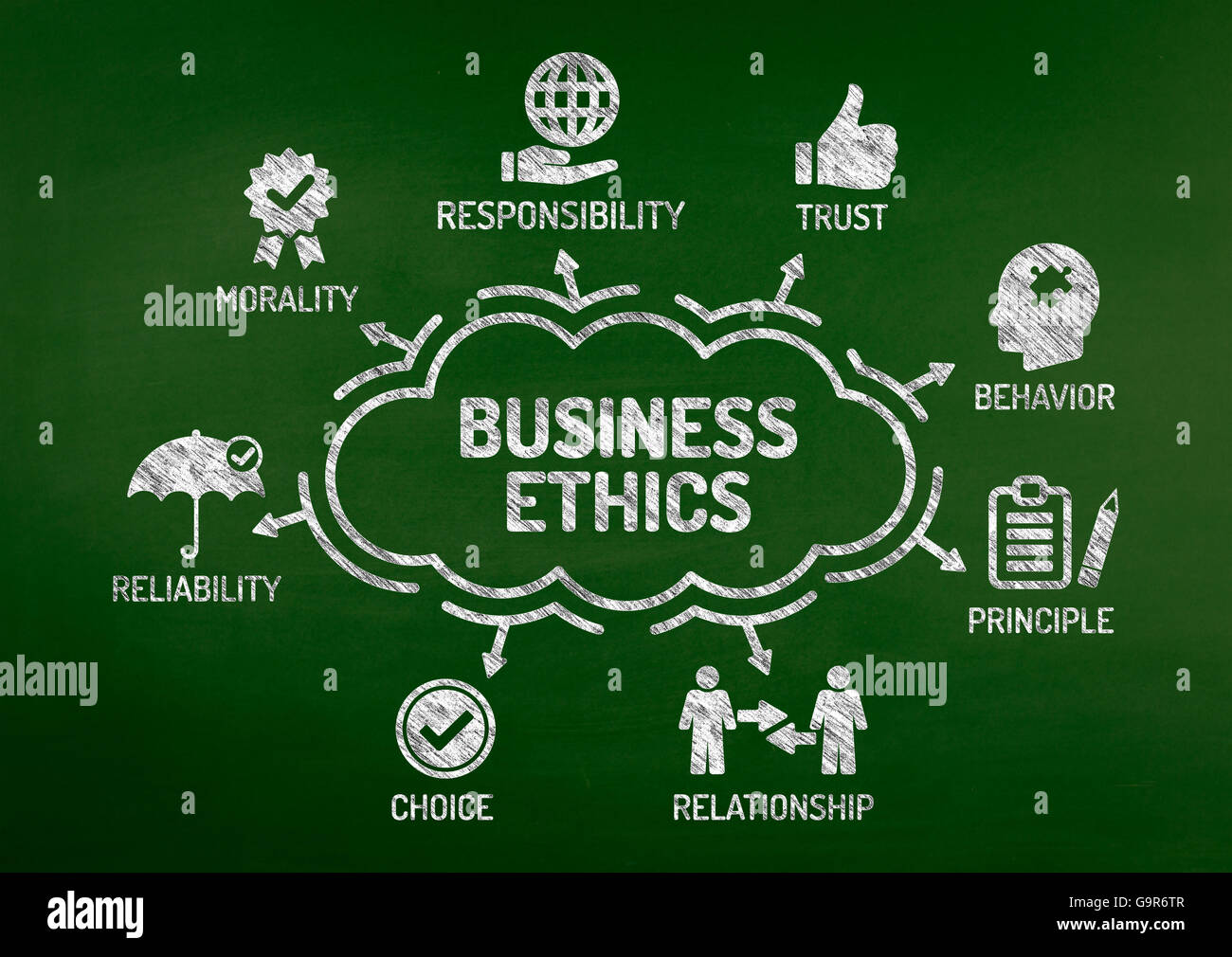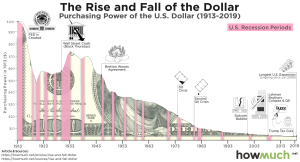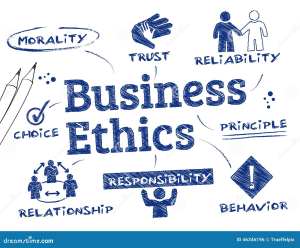Business ethics are crucial for navigating the complex landscape of modern commerce, where the line between right and wrong often blurs. With high-profile cases like those of Sam Bankman-Fried and Elizabeth Holmes serving as cautionary tales, the importance of ethical decision-making has never been clearer. Leaders today grapple with legal gray areas that challenge their moral compass while developing business decision strategies that align with both profit and principle. According to Joseph Badaracco, a prominent figure in the field of business ethics, understanding these dilemmas and making responsible choices is essential to avoid bad decisions that could have catastrophic outcomes. As the business world evolves, so must our approach to ethics, making it imperative to adopt frameworks that not only highlight ethical imperatives but also integrate practical considerations.
When discussing the principles of ethical behavior in business, one might refer to it as corporate morality or integrity in decision-making. This concept encompasses the need for businesses to adhere to moral values that transcend mere legal compliance, especially in an era marked by rapid globalization and technological advancement. Decision-makers are increasingly facing dilemmas that require them to balance competitive strategies with ethical obligations, often navigating through ambiguous situations where the right path isn’t clearly defined. As demand grows for transparency and accountability, organizations must cultivate a culture of ethically sound practices that promote fairness, responsibility, and public trust. Ultimately, understanding the nuances of corporate ethics is vital for leaders aiming to foster sustainable growth and avoid the pitfalls associated with unethical behavior.
Understanding Business Ethics Today
Business ethics has evolved significantly over the last few decades, transitioning from rigid applications of moral philosophy to more nuanced approaches that consider context and complexity. Initially, ethics education focused on fundamental theories such as utilitarianism and deontology, directing students to apply these frameworks to business decisions. However, contemporary discussions around business ethics highlight the importance of understanding the unique circumstances surrounding each decision. With the growing complexity of global markets and technological advancements, today’s business leaders must navigate not only their ethical obligations but also the expectations of multiple stakeholders.
As companies become more politically and socially engaged, their decision-making processes are increasingly influenced by a wider array of factors, including public scrutiny and regulatory frameworks. The intertwining of global issues with local business ethics has expanded the scope of ethical considerations. No longer can executives think solely in terms of shareholder value; they must also weigh the implications of their strategies on the environment, labor conditions, and community welfare. This shift emphasizes the necessity of strong ethical foundations and sound decision-making strategies in business practices.
Strategy for Ethical Decision Making
Joseph Badaracco, a renowned business ethicist, underscores the importance of strategic decision making amid ethical dilemmas. He advocates for a process-oriented approach that encourages executives to pause and consider all angles before making choices. This reflective practice is crucial in navigating legal gray areas where the lines of right and wrong are not clearly defined. By analyzing key facts, assessing risks, and consulting expert opinions, managers can better position themselves to make responsible and ethical decisions, thus avoiding potential pitfalls.
To foster a culture of ethical decision-making, organizations must prioritize open communication and collaborative discussions. Engaging diverse perspectives can help mitigate cognitive biases that commonly arise in challenging scenarios. Badaracco emphasizes that by working alongside others and encouraging different viewpoints, leaders can enhance their decisions’ rigor. Ultimately, promoting transparency and ethical accountability helps ensure that all business decisions align with the organization’s core values and responsibilities to stakeholders.
Navigating Legal Gray Areas with Confidence in Decision Making
In the corporate world, leaders often encounter legal gray areas where ethical and legal lines are blurred. Badaracco cautions against the temptation to reinterpret clear legal boundaries, as this can lead to self-serving and unethical behaviors. Understanding the delicate balance between compliance and moral responsibility is key; decision-makers must maintain a clear perspective on what is responsible and practical.
Improving ethical decision-making requires continuous learning and self-awareness. Managers can benefit from introspection and reflection, taking time to consider the implications of their choices on various stakeholders. A disciplined inquiry—asking, ‘What would I be comfortable living with?’—encourages leaders to confront the complexity of ethical issues while striving to avoid serious missteps. By fostering environments that encourage this type of reflection among teams, companies can create cultures that support sound and ethical business practices.
The Role of Reflection in Ethical Decision Making
Reflection plays a critical role in ethical decision making by allowing individuals to process complex information and emotions that influence their choices. Badaracco found that many successful executives engage in various reflective practices to enhance their decision-making processes. Whether through meditation, conversations with trusted peers, or activities that stimulate creative thinking, these moments of contemplation help leaders clear their minds and focus on essential questions regarding their responsibilities and the effectiveness of their decisions.
Furthermore, a systematic approach to reflection can aid managers in understanding how external pressures might obscure their judgment. By regularly assessing their thoughts against the backdrop of the company’s ethical framework and stakeholder expectations, leaders can gain clarity on the most responsible course of action. Reflection thus becomes a vital tool, enabling decision-makers to navigate the challenges of business ethics with greater confidence, ultimately fostering a strong ethical culture within their organizations.
Avoiding Terrible Decisions in Business
In an environment rife with uncertainty and complexity, avoiding terrible decisions requires a conscious effort from business leaders. Badaracco suggests that simply pausing to reflect before acting can significantly improve decision-making outcomes. By taking the time to analyze the potential impact of their choices, leaders can better identify potential ethical dilemmas and recognize when they might be tempted to bypass established norms for expedience.
Moreover, employing robust decision-making frameworks can help mitigate the risk of missteps. Executives should implement strategies that promote consultation with diverse teams, fully embrace stakeholder input, and prioritize transparency throughout their processes. By doing so, they can cultivate a culture that openly discusses ethical challenges and learns from past errors, ultimately steering their organizations away from practices that could jeopardize both their reputation and longevity.
Addressing Cognitive Biases in Business Decisions
Cognitive biases threaten to distort business decision-making, especially in uncertain or complex situations. Leaders often fall prey to biases that skew their judgment, leading to suboptimal or unethical conclusions. To combat these biases, Badaracco emphasizes the importance of fostering environments that prioritize analytical discussions and diverse opinions. By actively encouraging team members to challenge assumptions and share differing perspectives, decision-makers can better navigate the complexities of ethical dilemmas.
Furthermore, understanding one’s biases is an essential step towards ethical decision-making. Leaders must reflect on their inherent predispositions and strive to seek feedback from outside their immediate circles. Regularly engaging in self-assessment and remaining open to constructive criticism can help combat the natural inclination towards self-serving choices, making it easier to align decisions with ethical standards and corporate responsibilities.
The Changing Landscape of Business Ethics
Business ethics are rapidly evolving, responding to changes in societal expectations and technological advancements. Today’s leaders must be attuned to the ethical implications of new technologies and the broader social responsibilities that come with them. For instance, the rise of artificial intelligence brings forth a host of ethical dilemmas, from data privacy concerns to employment fairness. Recognizing the importance of navigating these emerging issues, organizations must prioritize the integration of ethical decision-making strategies into their core practices.
Moreover, the shift towards a more interconnected global economy requires companies to understand and respect diverse cultural values and norms. This awareness can significantly impact how businesses operate and respond to ethical challenges. As businesses increasingly find themselves in cross-cultural contexts, they must develop strategies that not only align with their ethical standards but also consider the unique needs and perspectives of local stakeholders.
Educational Foundations for Business Ethics
Education in business ethics has become increasingly vital for developing future leaders who can navigate the complexities of ethical decision-making. Programs such as those pioneered by Joseph Badaracco at Harvard Business School are designed to equip students with the necessary analytical tools and frameworks to tackle ethical dilemmas head-on. By focusing on real-world scenarios and engaging students in discussions about moral philosophy, these programs promote a deep understanding of the variables at play in complex business situations.
In addition to theoretical knowledge, practical applications of ethical frameworks are critical in preparing students for the challenges they will face in their careers. Interdisciplinary approaches that incorporate ethics into broader business curricula encourage critical thinking and empower future professionals to apply ethical principles practically. By fostering an educational environment where ethical considerations are front and center, institutions can effectively cultivate a new generation of leaders committed to ethical business practices.
Implementing Ethical Practices in Business Culture
A robust organizational culture centered on ethical practices is essential for long-term success in today’s dynamic business environment. Leaders must prioritize ethical considerations when developing their corporate values and communicate these values consistently across all levels of the organization. This commitment fosters a culture of integrity and accountability, encouraging employees to make decisions that align with the company’s ethical framework.
Additionally, continuous training and support can further embed ethical decision-making into the company’s daily operations. Regular workshops and real-case scenario discussions equip employees with the tools necessary to navigate ethical dilemmas confidently. Encouraging open dialogues about potential ethical concerns reinforces the importance of responsibility, ultimately helping prevent organizational missteps and ensuring that ethical practices permeate the entire company.
Frequently Asked Questions
What are some effective strategies for ethical decision making in business?
Effective strategies for ethical decision making in business include taking a step back to analyze the situation critically, understanding the perspectives of various stakeholders, and considering the long-term impacts of decisions. Additionally, seeking diverse opinions can help illuminate potential biases, ultimately leading to more sound business decision strategies.
How can business leaders navigate legal gray areas while maintaining ethical standards?
Business leaders can navigate legal gray areas by thoroughly researching applicable laws, consulting with legal experts, and fostering a culture of transparency and open dialogue within the organization. Engaging in discussions about ethical implications can prevent the temptations of exploiting ambiguity for self-serving purposes.
Who is Joseph Badaracco and what relevance do his teachings have on business ethics?
Joseph Badaracco is a prominent business ethicist and professor at Harvard Business School, known for his insights on ethical decision making and business leadership. His teachings emphasize the importance of reflective thinking and the complexities of ethical dilemmas in modern business environments, guiding leaders to make responsible decisions that balance various stakeholder interests.
What is the role of personal judgment in ethical decision making within business contexts?
Personal judgment plays a crucial role in ethical decision making as many business scenarios present complex gray areas rather than clear black-and-white choices. Leaders must assess their responsibilities carefully, weigh potential impacts, and rely on their moral compass to guide them towards practical and ethical solutions.
How can organizations avoid making really bad decisions regarding business ethics?
Organizations can avoid bad decisions by implementing a robust ethical framework, encouraging open communication, and training employees to recognize and analyze ethical dilemmas. A culture that promotes ethical thinking and reflection will help teams make informed decisions and sidestep potential pitfalls.
In what ways do changing technological landscapes impact business ethics?
Changing technological landscapes, such as advancements in AI and robotics, introduce new ethical challenges that can complicate decision making. Business leaders must evaluate the implications of these technologies not only on their business operations but also on their employees and society at large, striving for practices that promote ethicality in innovation.
What should executives consider when faced with ethical dilemmas in complex business environments?
When faced with ethical dilemmas, executives should consider the opinions of multiple stakeholders, analyze the urgency and importance of issues at hand, assess relevant facts, and understand the potential consequences of their decisions. Recognizing that ethical challenges often encompass shades of gray rather than definitive answers is essential.
How can businesses promote a culture of ethical decision making?
Businesses can promote a culture of ethical decision making by developing clear policies, providing training on ethical practices, and encouraging employees to share their concerns. Leadership should exemplify integrity and transparency to instill a sense of accountability and vigilance toward high ethical standards.
What are the key questions leaders must ask themselves to ensure ethical business practices?
Leaders should ask themselves key questions: “What truly matters in this situation?” “What are my primary responsibilities?” and “What potential consequences will my decision have?” These inquiries help clarify values and guide decision-making processes towards ethical outcomes.
How do cognitive biases affect decision making in business ethics?
Cognitive biases can cloud judgment, leading individuals to make unethical or self-serving decisions, particularly in gray areas. Recognizing these biases and encouraging collaborative discussions can mitigate their impact, fostering clearer, more ethical decision making.
| Key Points | Details |
|---|---|
| Ethical Decision-Making Changes | Business ethics have evolved from applied moral philosophy towards a more contextual approach, focusing on the specific situation and stakeholders involved. |
| Increased Complexity | Today’s business leaders face more complex ethical dilemmas due to global considerations, technological advancements, and shifting societal expectations. |
| Spectrum of Judgments | Good and bad judgments exist on a spectrum, requiring personal judgment rather than black-and-white assessments of right and wrong. |
| Cognitive Biases | Understanding cognitive biases is essential for leaders to make responsible decisions in gray areas where right and wrong are not clear-cut. |
| Reflection in Decision-Making | Effective decision-making often requires reflection to clarify thoughts, responsibilities, and the implications of choices. |
Summary
Business ethics play a crucial role in guiding leaders through complex decision-making processes. Understanding these ethical guidelines allows executives to navigate gray areas effectively, leading to more responsible and sound judgments. By emphasizing the importance of situational context and reflection, business ethics encourage leaders to contemplate their choices and the broader impact on stakeholders, ultimately contributing to a more ethical business environment.




